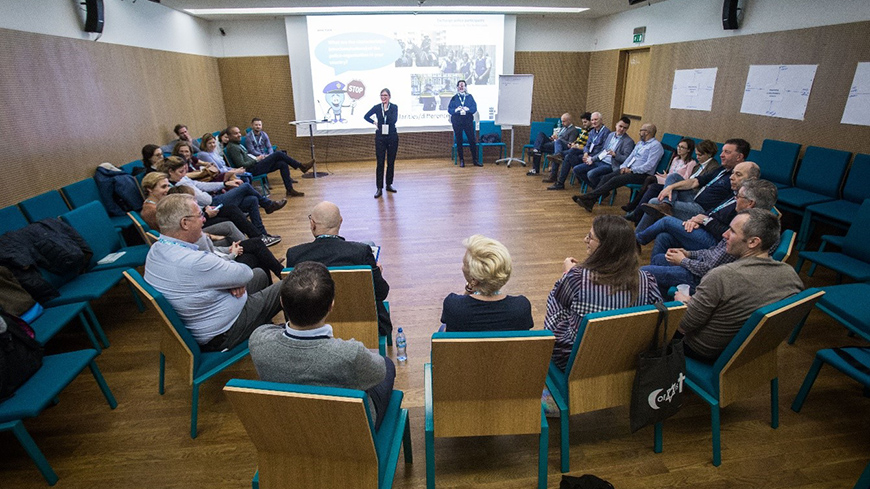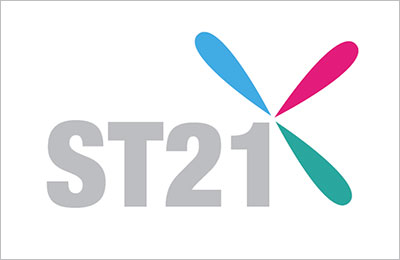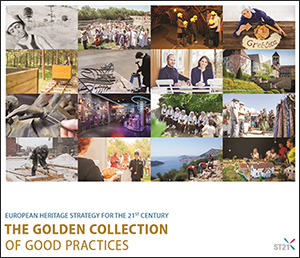Location of the initiative:

Initiator
Museum of the History of Polish Jews (POLIN Museum)
Relation to Strategy 21 Recommendations:
S4 - promote heritage as a meeting place and vehicle for intercultural dialogue, peace and tolerance
Time span of the initiative:
Start date: 01.03.2018 / End date: 29.02.2020
Motivation / Methodology
The project Horizontal Historical Education in Non-Discriminative Activities seeks to create a network of European institutions, working in the field of non-discrimination. We hope that our cooperation creates common ground for anti-discrimination education in our countries and will contribute to greater engagement in the promotion and protection of equal rights in Europe. The POLIN Museum of the History of Polish Jews (Warsaw, Poland), Kazerne Dossin (Mechelen, Belgium) and the Anne Frank House (Amsterdam, The Netherlands), all are museums dealing with the history of Jews - in the cases of Kazerne Dossin and the Anne Frank House, mostly in the history of the persecution of Jews and the Holocaust and, in the case of the POLIN Museum, with the presence of Jews in Poland from medieval to contemporary times. However, we are not only places of remembrance - in striving to recall the story of the Jewish population and its persecution, we also consider our mission in a broader sense.
We believe that our unique resources – historical exhibitions – can be used in anti-discrimination education and to demonstrate a disturbing repetition of social mechanisms. Using Jewish history as a starting point, we draw the attention of various groups, including schools, individual visitors and professionals, to processes underlying discrimination and persecution. We encourage participants of our tours and workshops to reflect on contemporary phenomena of racism, exclusion and discrimination on the grounds of origin, religion, belief, skin colour, gender and orientation, in order to sensitise them and to help them adopt an active social attitude which can help prevent and escalation of hatred.
Why with police and with teachers?
Law-enforcement and education institutions play key roles in developing a culture of inclusive tolerance. It is crucial, therefore, for police organisations and education professionals to be sensitive to diversity and inter-cultural issues and to have the knowledge, experience and skills for effectively dealing with discriminatory incidents. In this way, they become role models both in and out of their workplace activities. For this purpose, the three museums are reaching out to both teachers and police, recognising that these two professional groups are key in promoting a pluralist society in which people can live without discrimination.
The project Consortium (Anne Frank House, Kazerne Dossin and the POLIN Museum of the History of Polish Jews) took various actions. During the two-year project, the Consortium organised three international partner meetings (in the three partner institutions) in order to exchange experiences and prepare project materials.
Partners created together twelve ready-to-use manuals (six manuals for teachers and six manuals for police organisations), focused on anti-discrimination education. The manuals provide innovative tools and methods - each of them is translated into four languages (English, Polish, French, and Dutch).
In addition to the manuals, they developed one catalogue with good practices, comprising experiences from each institution (published in English).
All materials can be requested from the partners or downloaded from their websites (www.polin.pl, www.annefrank.org, www.kazernedossin.eu) In each project, country-unique “Training of Trainers” (TOT) were organised for teachers and police officers – in order to prepare skilled police and school trainers, who can use the above manuals. Altogether, seven scenarios for “Training of Trainers” (three for teachers, four for the police) were developed and thirty TOT activities (429 participants in total) for teachers and police officers were organised in Poland, Belgium and The Netherlands.
Graduates of those training activities conducted more than 120 dissemination activities (workshops and lessons based on manuals) before the end of the project and they continue in their work.
Obstacles / Barriers
LANGUAGE: The lingua franca of the project was English. Despite the fact that all representatives of the partner institutions speak it quite fluently, the fact that it is a foreign language sometimes caused difficulties in the clear understanding of the message. There were also difficulties arising from cultural differences in communication, including in the formulation of the message in some cultures more directly than in others.
PHYSICAL DISTANCE: The majority of contact amongst the partners in the project had to be conducted via email, telephone or Skype. The co-ordinators from the partner institutions stated that the personal meetings which took place, only a few times during the project, were the most effective form of communication. They recommend that, in these types of projects, we plan for more face-to-face meetings of project co-ordinators from partner institutions.
In addition to the abovementioned difficulties at the communication level, during the project, the partners had to face other challenges. The original assumption, that one set of manuals could be created for use in all countries, proved to be too optimistic. Creating material, appropriate to the context of all countries, was very difficult and, in the end, the partners decided to make regional modifications.
During the implementation of the program, which lasted two years, there were also circumstances which could not have been foreseen at the beginning and which had an impact on the work. In all partner institutions, changes occurred in the composition of implementation teams. All those involved in the project were, at the same time, responsible for other tasks. Hence, there were situations in which it was necessary to move dates of activities or to change the work allocation amongst the partners. Without doing this, the timely implementation of individual activities, at a high level, could have been at risk Prior to the commencement of the project, the members of the project consortium feared that the social and political situation could have a negative impact on the project’s activity and in extreme cases, even preventing it. However, it turned out that these fears were justified and representatives of the professional groups (teachers and police) were very much involved in the project, even pointing to its growing importance in the face of increasing polarisation and social tensions.
Change / Impact
The overall aim of the project was to address the problem of increasing intolerance in Europe, by fostering mutual learning on tolerance, respect and non-discrimination, through an exchange of good practices and strengthening of cooperation within the groups of the key actors – teachers and the police. Three institutions from Poland, Belgium and the Netherlands built a network to share experiences and to benchmark the best practices in non-discrimination education, and cooperated directly with representatives of the professionals, responsible for guardianship and education in civil society, in order to build their capacity in the field of tolerance, discrimination prevention and early response.
The project categorised current, prevailing, discrimination narratives and put together a set of counter-narratives. It produced a catalogue of good practices, comprising practical programmes, methodological solutions, manual examples - as prepared and run by the partners, for teachers and the police - on aspects of tolerance, respect and non-discrimination training. This English catalogue has been published online and enables a wider community to benefit from the project and facilitates the creation of new networks and the exchange of good practices. Furthermore, in order to equip the key stakeholders with skills and tools to recognise and counter intolerance, we categorised the prevailing forms of intolerance and disseminated key messages in the materials prepared specifically for them. Produced in the form of training manuals, the project supported community leaders and local authorities in developing and establishing adequate mechanisms of countering intolerance. The materials deepen the understanding of discrimination against ethnic and religious minorities, define phenomena and demonstrate the methods of early response to a number of forms of unequal treatment. Important representative groups of teachers and the police have broadened their skills and learned how to disseminate the manuals in their local environments.
Conclusions
The implementation of an anti-discrimination education programme, by museums dealing with Jewish history and /or the Holocaust, was considered a very good initiative by the participants. The different national perspectives and historical backgrounds showed the universality of (social) discrimination mechanisms. Teachers and police officers were - and still are - looking for new tools and methods to work on these topics. This project responded to these needs. The project responded, in an innovative way, to the needs of the target groups. The methods and types of actions proposed are based on the exchange of experiences and know-how between different agents involved in education for tolerance and diversity, who worked closely together with this project’s target groups. The methodology adopted combined active methods of adult education with historical reflection and analysis of contemporary dilemmas. It provided a theoretical basis and put forward practical solutions, taking into account human rights, focusing on the specific situation of each country and providing space for the exchange of experiences and ideas.
The elaborated materials fill a niche in the market of anti-discrimination education material. The value added by the project was the opportunity for the exchange of experiences with colleagues from other countries. It fosters creativity and confidence in working on these topics with the materials developed.
Despite the remote working, the need to use a foreign language, intercultural differences and communication barriers, the project partners consider the project to be successful.
The project has also shown that institutions, such as museums, strive to be socially responsible and actively participate in contributing towards civil society in Europe today.
Taking into account the socio-economic impact on the project participants/direct beneficiaries, participation in TOT empowered them with new skills and capacities, very desirable in modern western societies and, in this way, gave them the tools for developing their professional career and tools for improving their professional environment.
Direct results, pointed out by partners, were:
-the opportunity to exchange experience and good practices between the trainers and experts dealing in communications at museums which, in all three countries, are key centres which undertake activities aimed at the building of anti-discrimination awareness and undertaking educational activities aimed at professionals; -an emerging interest in the materials, created, in countries other than those of the partner institutions (Czechia, Lithuania, Germans and Ireland); -the enrichment of the museums’ educational materials.
Participants (beneficiaries) of the project highlighted these results:
-establishing contacts and exchanging experiences with the other training participants in their group and/or the educators from other countries; -the acquisition of new skills in group-work techniques; -the strengthening of anti-discrimination activities, being equipped with new, original and valuable training materials.
Lessons learned
Thanks to the deep and devoted cooperation, respect, and use of mutual experience, all consortium partners have emerged with new knowledge, new skills and new partners in co-operation. All materials are in use and all partners already plan further activities to provide wider access to those materials in their own as well as in other European countries. All the partners stated that, when preparing such activities, a large margin of time and resources should be allocated for their implementation and in the flexibility in the distribution of work and in any changes in the project, corresponding to changing external conditions. Key, also, is to develop, from the beginning, cooperation, communication and planning of the largest possible number of practical, working meetings, including those involving representatives of the groups to whom the project is addressed. Only then can their needs be fully met. Thanks to the evaluations by, and interviews with, the project beneficiaries, we know that the training conducted, and the materials developed have been assessed as useful. However, there are several elements, which could increase both the usability and ease of use of these materials, e.g. the possibility of consultation/supervision/intervention, which can be continued after the official conclusion of the activities, or support for networking amongst project participants in order to exchange experiences and good practices.
Online resources
Contact information
Contact person : Dagmara Manka-Wizor
Organisation : Museum of the History of Polish Jews POLIN
Email : dmanka@polin.pl
Phone : +48660353410
Website : www.polin.pl
Source of financing
Shared public/private financing (the grant from the European Commission, REC-DISC-AG-2016)





